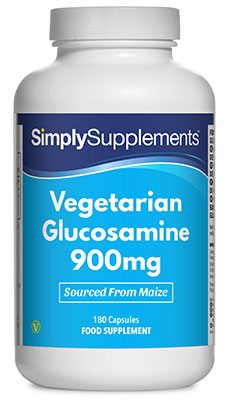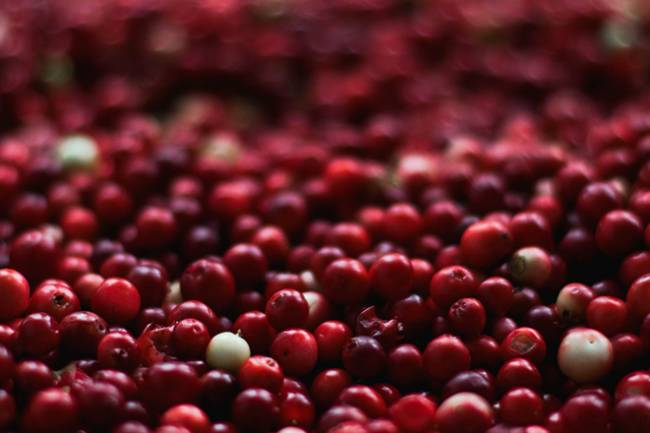Probiotics for Constipation: Do They Really Work?

Ask a random person on the street for a solution to constipation and one of the most common answers is likely to involve eating more fibre. Certainly, fibre can help to ease food through your digestive system, but scientists also known that it can also affect the friendly bacteria in your gut. As one scientist put it: “the interaction between fiber and the microbiota of the human colon appears to play a major role in generating the beneficial effects”.
As an interesting addition to this concept, scientists have also noted that certain bacterial strains are far less commonly found among individuals with constipation when compared to control groups. This therefore suggests that your gut bacteria may be having an impact on constipation.
It should therefore come as little surprise that a growing number of people are asking whether changes to your gut microbiotia can therefore impact cases of constipation. Just as importantly, can probiotics - supplements that contain additional doses of friendly bacteria - make for better digestion?
Probiotic Foods for Constipation
While for many of us the word “probiotics” conjures up images of supplements, there are also a number of foods that naturally include friendly bacteria. These are often alternatively known as “fermented foods” - where bacteria are used in the production process. Some great examples include standard yoghurt, kefir (fermented milk), cheese and sauerkraut. Several of these foods have been studied for their impact on digestion, so let’s take a look at some of the more interesting scientific research generated in recent years…
One study recruited constipation sufferers, providing half of the group with a 500ml kefir drink per day, while the others received a non-fermented placebo. After just four weeks of treatment the experiment ended, and the results were collated. Analysis of journal entries showed a significant increase in “stool frequency” suggesting a very noticeable improvement in their condition.
Elsewhere another study on a much larger group of individuals provided either 2 probiotic yoghurts per day or a probiotic-free dessert for a period of 14 days. Despite the shorter time during which the bacteria were able to make their impact felt, the results showed a small yet significant improvement in bowel movement regularity, as well as feelings of discomfort.
Interestingly, supplementary research has tried to compare yoghurts which naturally contain digestive bacteria against the same yoghurts that have been further fortified with additional bacteria. In essence, the fortified version gives a bigger “hit” of bacteria.
Perhaps unsurprisingly, based on the previous research, both treatments resulted in improved digestive activity. Rather more interestingly, however, the improvements among those taking the supplemented yoghurt were even more significant, suggesting a “dose dependent” impact.
Finally, a study in Brazil provided constipation sufferers with one of two types of cheese; one which contained beneficial bacteria and the other without. 30g of cheese was consumed by volunteers for a period of 30 days, during which each participant was asked to keep a journal of their experiences. In line with previous studies, the bacteria-enriched cheese was found to promote “beneficial effects on the symptoms”.
Certainly, according the above research, it seems that foods rich in specific helpful bacteria can improve constipation symptoms, but what about probiotic supplements themselves?
Probiotic Supplements for Constipation
Other studies have relied less on foods which naturally contain so-called friendly bacteria, but have instead deliberately added supplementary bacteria to otherwise inert foods. Alternatively, probiotics have been taken in tablet or capsule form.
Constipation can be particularly common during pregnancy, and can lead to significant discomfort. Sadly, many more traditional treatments are not considered safe for women carrying children, so interest has grown in whether probiotics may represent an effective, yet safe, solution.
One study recruited 20 pregnant women suffering from ongoing constipation. The active treatment group received a commercial “over the counter” probiotic supplement while other participants received a similar-looking placebo. While both groups saw at least some minor improvement during the treatment process, those women receiving the probiotic supplement reported far greater improvements. To list just a few, abdominal pain fell by 40%, while feelings of constipation fell from 90% to 45% - a 50% reduction.
Children represent another group within which constipation can be commonplace. Once again probiotics can represent a safe alternative to more traditional remedies, and can be provided in foods or formats which children find appealing.
Over the course of four weeks, a group of constipation sufferers aged between 4 and 16 years of age received a daily dose of probiotic powder. The supplement chosen contained a huge range of different bacteria considered to be beneficial for digestion, including assorted Bifidobacteria and Lactobacilli strains.
Marked improvements were seen within just a few weeks of treatment. The data demonstrates a reduction in overall symptoms, with improvements in stool consistency and abdominal pain in line with previous experiments. The experts concluded that “a mixture of probiotics has positive effects on symptoms of constipation”.
Caution in the Data
So far we have examined the results from just a handful of the many past studies to investigate the link between probiotics and constipation. In fairness, the information presented paints a very positive picture indeed. However, it would be remiss of us not to highlight a number of cautions to the reader.
Firstly, many of the studies carried out - both showing positive and negative results - have incorporated very few test subjects. Many experiments have utilized just 20 or 30 volunteers, so the results should be treated with a pinch of salt. Much larger studies would be required before a definitive answer to the question can truly be given.
Furthermore, the European Food Safety Authority has yet to authorise the health claim that probiotics help constipation. It is considered that the evidence so far, while promising, is far from conclusive.
Lastly, it is important to point out that our gut microbiota can vary significantly from one person to another based on a range of lifestyle factors. It is crucial to appreciate therefore that one bacterial strain may benefit some individuals but not others. It is for this reason that many of the more impressive results seen have used a “cocktail” of strains known to be actively involved in digestion. For anyone considering the use of probiotics for digestive issues a similar “broad spectrum” supplement is likely to yield the most impressive results.
Are There Any Side Effects to Taking Probiotics?
When used in a controlled manner most individuals experience few to no side effects from the use of probiotics. For a small number of people, probiotics may result in mild short term side effects such as an upset stomach, diarrhoea, gas and bloating, particularly in the first couple of days.
Some experiments have indicated adverse effects for those suffering from Crohn’s disease, so it is recommended that sufferers avoid supplementing with probiotics without suitable medical guidance.
The strong safety profile of probiotic foods and supplements is another tempting element in their use. For constipation sufferers on the fence, a short course of probiotics may represent a low cost and low risk experiment to see if you too experience positive improvements.
How Long Before Probiotics Work for Constipation?
Probiotics can be thought of as a dose of “friendly” bacteria. This means that shortly after consuming a probiotic supplement or food your good bacteria levels should begin to increase. However, it is also important to appreciate how quickly bacteria can replicate under optimal conditions. Alongside this colony growth, so many people report gradual improvements in their condition.
It would therefore be a mistake to assume that a single dose of probiotics will lead to near-instant improvements in digestive conditions. It is perhaps most useful to look at the results of clinical studies, to see the period of time over which results show. While a minority of experiments have demonstrated improvements in as little as a week, a more standard timeframe is roughly four weeks.
Consequently, while there is a possibility that you may see improvements within days, should your constipation not improve over the short term it is advisable to continue treatment for a period of a month or so to experience the full effects.
What are the Best Probiotics for Constipation?
As stated earlier, we all have a slightly different range of bacteria in our guts, so choosing the “best” probiotics can be challenging. Of interest, we combed through the scientific literature and noted that studies which showed positive results most commonly used the following bacteria:
- Lactobacillus casei
- Lactobacillus plantarum
- Lactobacillus reuteri
- Lactobacillus rhamnosus
- Lactobacillus sporogenes
- Propionibacterium freudenreichii
- Bifidobacterium animalis
- Bifidobacterium bifidum
- Bifidobacterium breve
- Bifidobacterium infantis
- Bifidobacterium lactis
- Bifidobacterium longum
This is perhaps rather an intimidating list, but these results can be boiled down to just two recurring themes - principally Lactobacillus and Bifidobacterium strains. This is further backed up from studies examining bacterial differences between individuals with or without constipation. One such paper reports that “Bifidobacterium and Lactobacillus have been shown to be significantly less abundant in adult patients with constipation”
So, when it comes to choosing a probiotic this data suggests that you would be wise to select an option which:
- Incorporates a number of different bacterial strains.
- Includes ideally Bifidobacterium or Lactobacillus.
Our own probiotic supplements - both our probiotic powder and our tablets - use a patented blend of friendly bacteria known as LactoSpore, which includes Lactobacillus sporogenes as discussed above.
Alternative Treatments for Constipation
In closing, the evidence for the treatment of constipation with probiotics is quite encouraging (albeit not conclusive) and offers a cost-effective and low risk treatment option. However, this is far from the only supplement-based solution on the market.
For example, researchers have reported that “inulin has dose-related laxating effect”. Inulin is a fine powdered supplement made from chicory, so could represent a natural addition to your supplement regime. Learn more about inulin here.
Furthermore, one of the best-known supplements for constipation is actually magnesium citrate. Magnesium functions by drawing water into the gut from the rest of the body. When this happens stools not only travel more easily but can absorb this water, making for easier and more comfortable passing. Learn more about magnesium for constipation here.
Lastly, if you find that you’re suffering from constipation on a routine basis then you may want to consider some other simple lifestyle and dietary changes. We’ve got a detailed guide to the best foods for constipation which you can find here.
Sources:
https://www.hindawi.com/journals/cjgh/2003/654907/abs/
https://www.karger.com/Article/Abstract/63075
https://nutritionj.biomedcentral.com/articles/10.1186/1475-2891-6-17
https://www.tandfonline.com/doi/abs/10.3402/fnr.v45i0.1790
https://nutritionj.biomedcentral.com/articles/10.1186/1475-2891-11-80
https://www.ncbi.nlm.nih.gov/pmc/articles/PMC3198021/
https://link.springer.com/article/10.1007/s00053-011-0177-0
https://www.sciencedirect.com/science/article/pii/S1521691811000047
http://www.scielo.br/scielo.php?pid=S0004-28032013000300196&script=sci_arttext
https://www.ncbi.nlm.nih.gov/pmc/articles/PMC4288092/
https://nutritionj.biomedcentral.com/articles/10.1186/1475-2891-10-19
http://www.redalyc.org/html/1993/199318017005/
https://pdfs.semanticscholar.org/cccf/957cad205161ae345c37e8e72ae518da4f8a.pdf
https://pdfs.semanticscholar.org/8091/6df706e984efe10ae452e6d31342c1e3af70.pdf

 Richard
Richard 

























